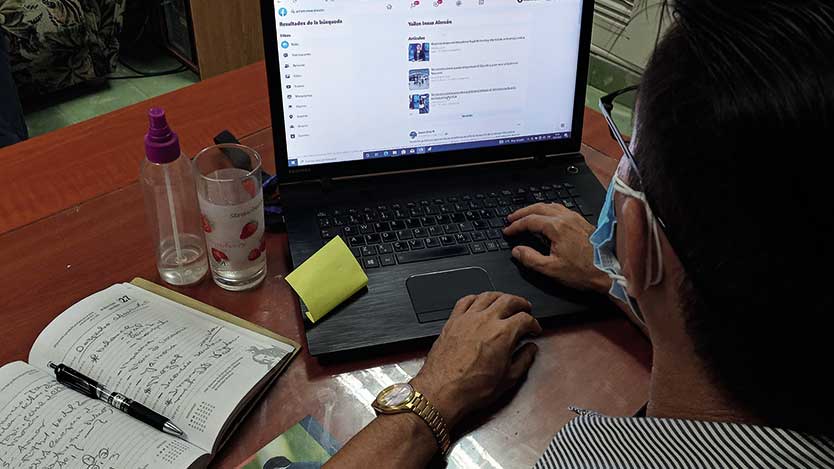
Apparently, almost two years have not been enough to straighten out the implementation of remote work in Ciego de Ávila, which continues to be “pigeonholed” as an alternative and not a solution, when it comes to provide services and fulfill productive tasks efficiently.
We went from high to low in just days, just as the impact of COVID-19 receded. To illustrate the decline with figures, Luis Bernardo Rodríguez Marín, Employment specialist at the Provincial Directorate of Labor and Social Security, explains that there were 17,397 people working in these conditions at the end of 2021, while now there are only 2,482.
“To date, the entities of national subordination are the ones that are least linked to remote work, in its modalities of teleworking, at home and in the field; despite the fact that the benefits are many and that there are clear regulations for its implementation. It is still believed that meeting a schedule and remaining in the position guarantees the quality of the work carried out”.
The truth is that with the advance of COVID-19 we only "discovered the warm water" in relation to this type of employment. Since it already had legal support in Law No. 116, of December 20, 2013, Labor Code, which provides in its Article 24 that the contracts must contain the place of work agreed between the parties, hours, duration of the day, and the work and rest regime.
Then and with more urgency, its benefits have been insisted on, and progress was made in clarifying its implementation with the publication of the Extraordinary Official Gazette No. 72, with which Resolution 71/2021 of the Ministry of Finance entered into force. Labor and Social Security, in which the Regulation of remote work and telework is dictated.
With all that, from paper to reality there is a long way. This is confirmed by Niurka Ferrer Castillo, provincial secretary of the Workers Center in Cuba, with the fact that there is a lack of technical equipment to expand teleworking, and that in organizations and entities there are doubts about how to control the work of those who are at home or on the ground, and how to negotiate and draw up the contract.
“We have detected that, on occasions, the contract of those who worked at home was never modified. So, what to do in the event of an accident at work and how to guarantee compliance with rights and duties, as well as health and safety conditions. These days we tour the municipalities of the territory and this is one of the core issues to be discussed. In addition, union leaders are trained in this regard, because it is necessary to define positions that, due to their nature and functions, can be exercised remotely”.
Due to its experience in the sectors of Health, Education, Public Administration and Construction, the modality has permeated, but not in the rest, where the idea that attendance is synonymous with performance persists.
Although remote work may be limited by objective factors such as technological means or connectivity, on other occasions they are mediated by subjectivity and the fact that repeating the formula is easier than reinventing ways of doing things. In the end, everyone wins, but to understand how it is necessary, to begin with, focus on objectives achieved and not on face-to-face hours.




